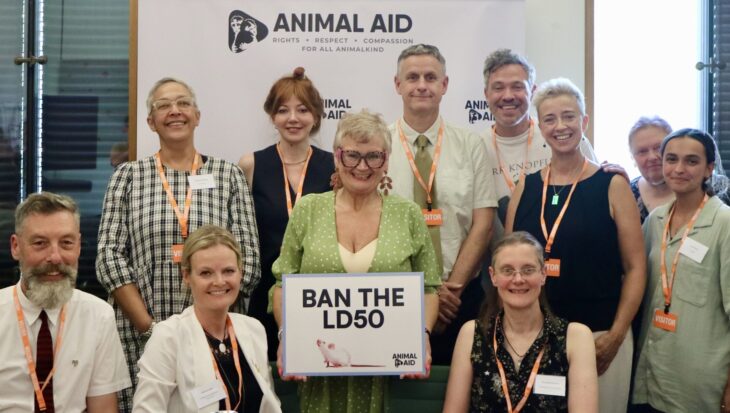The mechanism used to ‘transpose’ EU Directive 2010/63 has been to introduce changes to the existing 26-year-old national statute. The new domestic law will, therefore, be called the Animals (Scientific Procedures) Act 1986 Amendment Regulations 2012.
It will essentially mean business as usual for animal experimenters in the UK. Animals in laboratories will not benefit from stricter controls on their use and abuse, but nor will existing restrictions on what can be done to animals be relaxed in any major way. However, a significant number of EU member states have historically exercised very few controls in this area, and standards and safeguards for tens of thousands of animals in such countries will be substantially better.
Although the amended Act comes into force at the beginning of 2013, there are still a number of battles to be fought. These relate to the contents of the guidelines that govern day-to-day activities in animal labs, as well as to questions of public accountability. Animal Aid, alongside other animal protection groups, will be pressing the Home Office on both these fronts.
Important guideline-related objectives include ensuring that the requirement to stick to the severity limits (the degree of pain and anguish that can be inflicted on animals) is set out in plain terms in the licence granted to experimenters. A key accountability matter is membership of the so-called Animal Welfare and Ethical Review Bodies (AWERBs). The equivalent bodies currently in action are supposed to preview, at a local level, proposals for new vivisection programmes, prior to those plans going for ultimate approval to the Home Office. Animal Aid is pressing for the guidelines to insist that all AWERBs have a genuinely independent element in what is at present a cosy tick-box system.
The future of ‘thematic reviews’, as allowed for by the new legislation, is also a matter of vital concern. Such reviews offer the potential to formally assess and eliminate whole categories of experiments where they can be demonstrated to be of no value. This coincides neatly with the Coalition Government’s pledge to work to reduce the number of animal experiments. We must ensure that the Home Office works speedily to meet this obligation and that it recognises the potential that thematic reviews offer for doing so.
We are also determined to ensure that the millions of genetically modified mouse victims of laboratory breeding and experimental programmes receive, at the minimum, official recognition. At present, an enormous amount of suffering and death does not even reach the official statistics. Our research shows that GM mice are suffering unimaginably brutal treatment in laboratories across the UK, during breeding programmes and actual experiments.
So far, those responsible and their government facilitators have succeeded in painting a benign picture of fruitful research on animal ‘models’ who merit little public concern (‘they’re only mice’). Animal Aid will be publishing a major new report in the New Year revealing the truth about this cruel and scientifically bogus enterprise. The task before all of us, thereafter, must be to serve as unapologetic and bold advocates for a massive and growing group of animals who have been callously sidelined for far too long.

